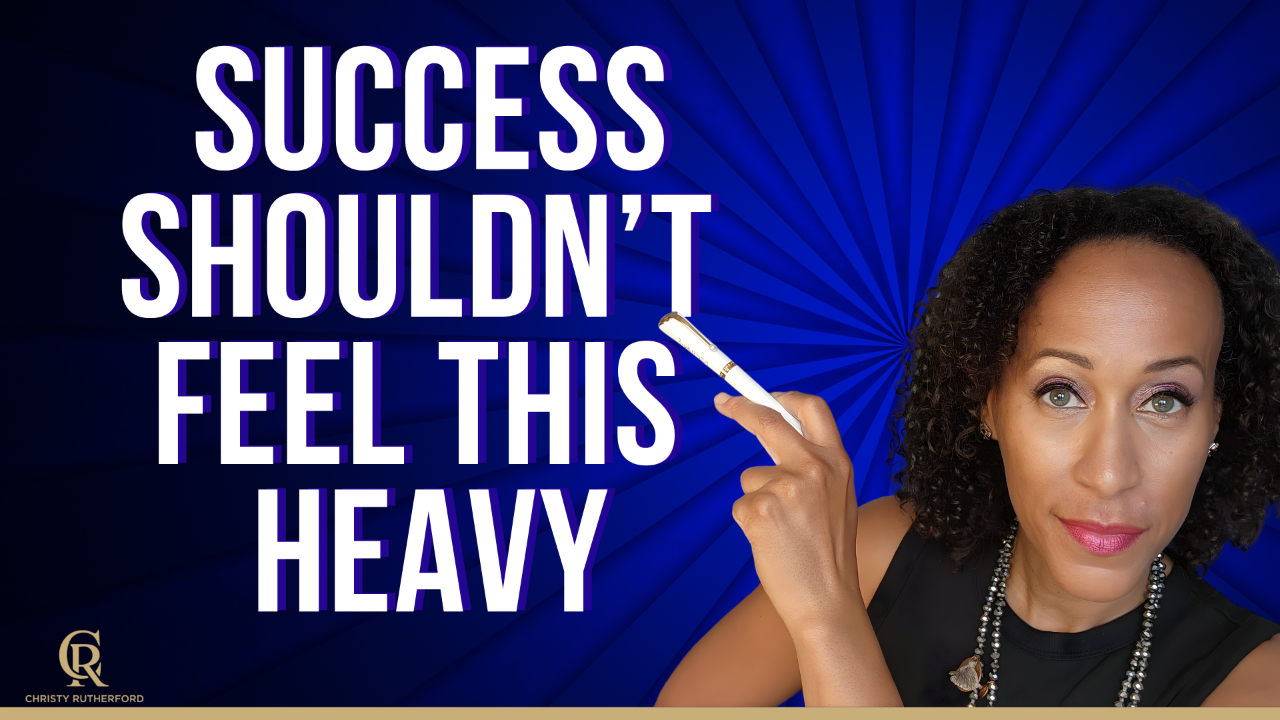Why Highly Successful People Feel Stuck: The Role of Childhood Trauma in Career Growth
Jun 15, 2025
After talking to hundreds of highly successful people working in executive leadership positions, I noticed a pattern. (1) Some of them had no idea how great they were. (2) They thought success would feel different. (3) They felt stuck and like they were going in circles. (4) Regardless of their position, salary, and how many degrees they had, they did not feel successful.
They were successful but unfulfilled and could not articulate how they secretly felt something was missing, regardless of their success and material possessions.
They felt guilty for not being happy with having it all; shame for not being able to confess to their family and friends that they were unhappy. As time passed and the number of conversations increased, it all led back to their childhood.
In my career as a former maritime emergency responder, we searched for the root cause of accidents. As a pollution responder, while certain people were worried about ducks with oil on them and others were concerned about oil washing up on beaches, our first concern was to figure out the oil source so we could stop it.
As an incident manager (similar to 911 for accidents on the water), if a ship hit a bridge or caught on fire, I had to take in 100 details from various sources to paint a macro-level picture of who, what, when, and how. Then, I had to whittle down the details and create a three-minute brief for my leaders to recommend how we should proceed forward.
When it came to major accidents, during the investigation, we discovered systematic patterns of mistakes. Something catastrophic would happen when they were added to a series of small events. This is true in most major disasters.
With that, I am wired to listen to people, get a macro-level vision for their lives, look for patterns, find the source, and then tell a short story of what happened with recommendations for fixing it.
Working with clients in the Vision Finder Masterclass™, I have noticed the same patterns of major disasters show up in human behavior. Having the opportunity to dig deeper into people's psyche and put together these seemingly small events, they are usually rooted in one or two events.
When people face challenges in relationships or at work and cannot seem to get ahead, they are solving the wrong problem. The 15 or so problems they have in their adult life are rooted in one to two events from their childhood. The root cause – their Trauma Default®.
Trauma Default® is the setting people go to when they are under pressure, stressed out, or have to take risks. The voice in their head gets louder and reminds them of the times they have failed. They hear a recording of someone saying, “You’re going to fail.”
“You’ll never make it.”
“Who do you think you are?” or any other self-defeating phrase that talks them out of playing bigger.
Visual images flash into their head of a traumatic experience; being beaten as a child, sexually abused, impoverished, a refugee, hungry, or homeless. It doesn’t have to be abuse or severe physical trauma. It can also be one of seeing their father walk out, their mom depressed or feeling rejected by family or like an outsider as a child and playing alone.
Maybe they were the oldest child of six who felt responsible for the rest of the children and felt like they did not have a proper childhood. It can also be the sixth child who was told they were the surprise baby and adopted a feeling of not being wanted.
The “trauma” is based on the perspective of the child. It is true in their mind and is their perception of what happened, whether or not it happened that way. Children believe they are invincible, and when an event breaks them of that belief, that is what they carry with them for years to come.
People who carry the pain of their childhood are not living in the present moment. They are living through the lens of their painful past. They are so busy focusing on who they don’t want to be that they give no thought to who they want to be. They can’t adequately feel all they’ve accomplished because they’re still feeling the wounds of their past. The struggle between who the world sees and who the voice in their head condemns becomes more challenging as people get older, and the pressures of life increase.
A rich person can feel like a pauper if their Trauma Default® is connected to being poor in their childhood. A woman who feels rejected by her father will carry that rejection into her relationships and, ultimately, her marriage. Then, the same pattern will occur as she complains that her spouse rejected her. But the story will be identical to the story of the rejection from her father.
How has Trauma Default played a role in your career?
Watch this VIDEO where I shared how Trauma Default traps you in a cycle of the Imposter Syndrome, burn out and not owning your value.

Lorem ipsum dolor sit amet, consectetur adipiscing elit. Cras sed sapien quam. Sed dapibus est id enim facilisis, at posuere turpis adipiscing. Quisque sit amet dui dui.
Stay connected with news and updates!
Join our mailing list to receive the latest news and updates from our team.
Don't worry, your information will not be shared.
We hate SPAM. We will never sell your information, for any reason.

